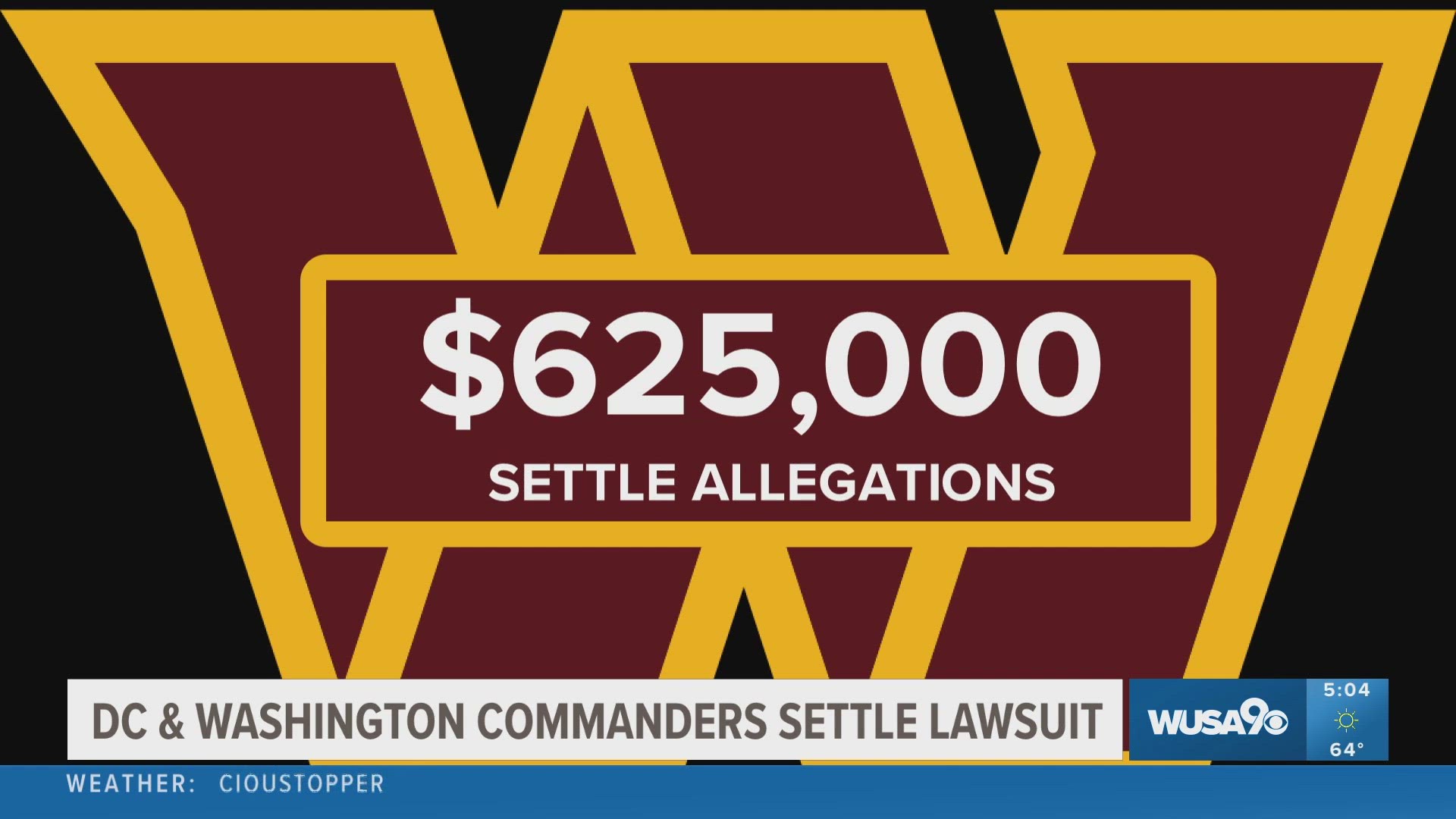WASHINGTON — The Washington Commanders have reached a settlement with the D.C. attorney general's office over allegations the team illegally withheld fans ticket deposits, made the reimbursement process intentionally difficult and redirected those funds for personal use.
D.C. Attorney General Brian Schwalb said Monday morning that the Commanders would "return over $200,000 to impacted residents" and pay a $425,000 penalty to the District as part of the settlement. They have 30 days to make the payment to D.C.
“Rather than being transparent and upfront in their ticket sale practices, the Commanders unlawfully took advantage of their fan base, holding on to security deposits instead of returning them,” Schwalb wrote in a press release Monday. “Under this settlement agreement, our office will maintain strict oversight over the Commanders to ensure all necessary steps are taken to reimburse fans for the refunds they are entitled to. Our office takes seriously the obligation to enforce D.C. consumer protection laws by holding accountable anyone that tries to exploit District consumers.”
In the agreement, the team denied all of the Districts allegations.
"We have not accepted security deposits or seat licenses in more than a decade and have been actively working to return any remaining deposits since 2014," the Commanders said in a statement. "We are pleased to have reached an agreement on the matter with the DC Attorney General and will work with the office to fulfill our obligations to our fans."
Fans who believe they were impacted by the ticket deposit reimbursement debacle can find details about how the team is now required to notify them and attempt to return their money here.
READ: The full settlement
In November, D.C. sued the Commanders for cheating ticket holders out of hundreds of thousands of dollars. The AG's office alleged the team sold premium seating tickets to fans in D.C. since 1996, saying some required a "substantial security deposit." Those deposits were promised to be refunded back to customers within 30 days of the contract's expiration, according to the lawsuit.
However, upon ticket holders' request for their deposit refund, the lawsuit accused the team of purposefully making the refund process complicated "by imposing extra, burdensome conditions that were not previously adequately disclosed."
According to the lawsuit, an employee of the Commanders told corporate officers that what the team was doing violated the contract's terms in 2009. However, the team continued its practices, the AG’s office alleged.
At the time of the lawsuit, the AG’s office said the Commanders had returned some of the money to customers, however, officials say that nearly $200,000 was still unreturned as of March 2022. The lawsuit accused the Commanders of allegedly forfeiting thousands of dollars from D.C. consumers' security deposits then turning that money into revenue for the team.
The AG’s office alleged the Commanders "implemented an illegal scheme to cheat District ticket holders out of their deposits for season tickets and use the money for its own purposes."
The Commanders settlement with D.C. follows a similar settlement with the attorney general’s office in Maryland in November. Under that settlement, the Commanders were required to refund all security deposits that have not yet been returned to consumers who are no longer ticketholders within 30 days. If any of the payments are undeliverable, the team must turn the funds over to be held as unclaimed funds.
The Commanders also agreed to pay a $250,000 civil penalty.
Maryland Attorney General Brian Frosh alleged the team collected security deposits from season ticket holders and other purchasers of tickets for seats in luxury suites. Under its contracts with ticketholders, the team was required to return the deposits within 30 days after their contracts for seat licenses expired or were terminated. The Commanders did not return the deposits to consumers unless they requested the return in writing.
Frosh accused the team of violating the Consumer Protection Act when it failed to honor its contracts and return the deposit to consumers.

